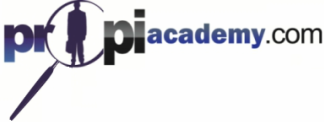 No industry is free from individuals that choose to do the wrong thing from time-to-time and this applies to private investigators as well. Unfortunately, there are those limited few that bring discredit to our profession and it often reflects badly on all of us. Ethical, professional private investigators are always alert to conduct that may breach or violate ethical professional standards. Here is a simple decision making method to determine if your conduct during an investigation is ethical. This method is extremely important when the decision is not clear.
If you answer Yes to any of the questions above then you should not take that action. If you can answer No to all of these questions, there is a great chance that others will not question your conduct. One question that often comes up from students, "Is there any situation where violating ethics acceptable, maybe more ethical?" This is a tricky question as it seems to imply the private investigator is conducting an unethical act when they learn something that is of such great importance to reveal that it would make the unethical act ethical. Our answer, considering the context of the question, is No - we are not aware of any "excuse" to make unethical conduct ethical. Otherwise the action(s) would be ethical at the time. The biggest risk a private investigator takes when deciding to pursue an unethical or questionable action in their investigation is the harm that may be done to a client. This is unethical behavior aside from the action - creating risk for the client. It's unfortunate that a few investigators decide to continue moving in the wrong direction when they know better, or are just not sure. When they do, and get caught, this reflects badly on them and badly on the private investigator profession. Any time the action is questionable, you are not sure if the answer is Yes or No, the best course of action is to find an alternative approach or discuss with legal counsel, or other trusted colleagues in your profession. For fun, watch New York Private Investigator, Michael McKeever, by clicking here, Fact-Check some private investigator movies.
0 Comments
 Interviewing is one of the critical skills that private investigators bring to the table in any investigation. Gaining information from witnesses, suspects, and subject matter experts often is the primary method that private investigators use to solve a case. Establishing rapport with the person being interviewed is the first step in any interview, increasing the chances that the private investigator will gain the information they need. Before an interview, gather information about the individual such as reading statements they have provided prior to the interview, understanding their role in a company, or the reason they are being interviewed. Then;
Building rapport requires effort on the part of the private investigator in an interview situation. Think of building rapport as making an investment in the investigation. It requires a few minutes of time but can provide excellent results. We have selected 10 articles from the Pro PI Academy blog and packaged them into a E-Book (e-pub) and PDF formats. Why? You can download the articles, keep them on your phone, computer, or tablet, and refer to them anytime. As well as having a table of contents that can take you directly to the article you want to read. Download them here.
Watch this brief presentation on surveillance planning. Brought to you by Pro PI Academy and Bodyguard 101. Share your tips by commenting below. Pro PI Academy is proud to announce that we have partnered with Haiku Learning to further enhance our online classroom. After months of beta testing, gathering feedback from our peers, we have launched the new classroom.
Students can access their course, assignments, and independent study through one portal. In addition, they can track their progress through their grade book. Assignments and instructor communications are accomplished through the online classroom making a seamless online learning experience. The new online classroom is available for both the 80 hour Professional Investigator and Continuing Education Courses. 1. Save Time Scheduling and implementing online learning is less time-consuming and allows the learner to work when they are available to focus on the learning content. 2. Save Money Eliminate travel expenses to and from the classroom where the course is taught. 3. Get the Professional Credit Training You Need ProPI Academy courses meet the requirements for the Georgia Board of Private Detective and Security Agencies 4. Add Flexibility You can access online learning opportunities anytime, any place you have access to the Internet, from the comfort of your own home, the beach while on vacation or wherever you might have time to yourself. 5. Increase Accountability Online learning through ProPI Academy is even more accountable than traditional professional development because assignments, course completions, testing, and participant progress are monitored online. 6. Bring Education Theory to Life Our online learning experiences take full advantage of the interactivity and multimedia power of the Internet. We engage you with narrated powerpoint presentations, relevant videos and student activities, self-guided research activities. This wide variety of activity and question formats offers a more valuable learning experience than a typical workshop or textbook-based courses. 7. Promote Transference of Learning to the Workplace Instead of one-shot workshops, you can use the flexibility and lower costs of online learning to follow-up on learning activities with support that leads to implementation of new practices. 8. Create Excitement About Learning The multimedia delivery of online professional development and the ability to choose the time when you are at your best makes learning more engaging and fun! |
Pro PI staffExperienced professionals and trainers. Articles
December 2019
Categories |
||||||||||||||

 RSS Feed
RSS Feed
